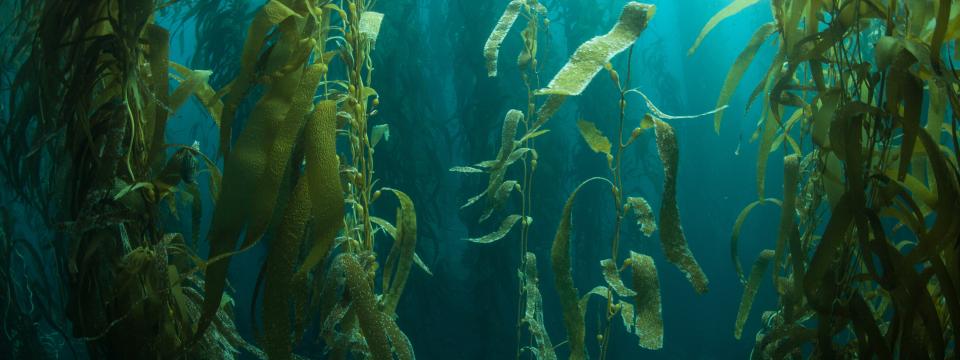This bibliography gathers publications over many years from a variety of researchers exploring topics of agency, directionality, and function (among others) with a special emphasis on CASP members. It began with work from teams within the initial Agency, Directionality and Function project and continues to be populated with papers and articles from diverse researchers looking to further develop and expand ways of working interdisciplinarily on the complex theme of teleology.
Included in the bibliography are entries for publications and books that many scholars involved in the Agency, Directionality and Function project recommended as foundational texts in their field of study. We welcome suggestions for additions to the bibliography from CASP members.
Agency and Autonomy
Michod, R.E. and Roze, D. (2001). “Cooperation and conflict in the evolution of multicellularity.” Heredity 86:1–7.
Militello, G., Bich, L., & Moreno, A. (2021). Functional Integration and Individuality in Prokaryotic Collective Organisations. Acta Biotheoretica, 69(3), 391–415.
Moin Afshar, N., Cinotti, F., Martin, D. A., Khamassi, M., Calu, D. J., Taylor, J. R., & Groman, S. M. (2022). Reward-mediated, model-free reinforcement-learning mechanisms in Pavlovian and instrumental tasks are related. The Journal of Neuroscience, JN-RM-1113-22.
Moreno, A. (2007). “A systemic approach to the origin of biological organization.” In Systems Biology: Philosophical Foundations. Edited by F.C. Boogerd, F.J. Bruggeman, J.S. Hofmeyr and H.V. Westerhoff. Amsterdam: Elsevier.
Moreno, A. (2023). Some Reflections on the Evolution of Conscious Agents: The Relevance of body Plans. Biosemiotics.
Mossio, M. and A. Moreno. (2015). Biological Autonomy. Springer Dordrecht.
Nanjundiah, V., Geeta, R., & Suslov, V. V. (2022). Revisiting N.I. Vavilov’s “The Law of Homologous Series in Variation” (1922). Biological Theory, s13752-022-00403–3.
Newman, S. A. (2023). Inherency and agency in the origin and evolution of biological functions. Biological Journal of the Linnean Society, 139(4), 487–502.
Newman, S. A. (2023). Inherency and agency in the origin and evolution of biological functions. Biological Journal of the Linnean Society, 139(4), 487–502.
Newman, S. A. (n.d.). Inherency and agency in the origin and evolution of biological functions. "Inherency and Agency in the Origin and Evolution of Biological Functions." Biological Journal of the Linnean Society, blac109
Newman, S.A. (2012). "Physico-genetic determinants in the evolution of development." Science 338:217–219.
Newman, S.A. (2016). "’Biogeneric’ developmental processes: drivers of major transitions in animal evolution." Philosophical Transactions of the Royal Society B: Biological Sciences 371(1701). https://doi.org/10.1098/rstb.2015.0443.>
Newman, S.A. (2022). “Form, function, agency: sources of natural purpose in animal evolution.” In Evolution ‘on Purpose’: Teleonomy in Living Systems. Edited by P. Corning, D. Noble, J. Shapiro and R. Vane-Wright. Cambridge (MA): The MIT Press.
Nuño De La Rosa, L. (2023). Agency in Reproduction. Evolution & Development, ede.12440.
O’Malley, M.A. and Powell, R. (2016). “Major problems in evolutionary transitions: how a metabolic perspective can enrich our understanding of macroevolution.” Biology & Philosophy 31:159–189.
Okasha, S. (2018). Agents and Goals in Evolution. Oxford: Oxford University Press.
Patten, M. M., Schenkel, M. A., & Ågren, J. A. (2023). Adaptation in the face of internal conflict: the paradox of the organism revisited. Biological Reviews, brv.12983.
Pepper, J.W. and Herron, M. (2008). “Does biology need an organism concept?” Biological Reviews 83:621–627.
Queller, D.C. and Strassman, J.E. (2009). “Beyond society: the evolution of organismality.” Philosophical Transactions of the Royal Society, Part B: Biological Sciences 364:3143–3155.
Rosen, R. (1991). Life Itself: A Comprehensive Inquiry into the Nature, Origin and Fabrication of Life. New York: Columbia University Press.
Rosslenbroich (2014). On the Origin of Autonomy: A New Look at the Major Transitions in Evolution. Springer Dordrecht.
Rosslenbroich, B. (2009). “Outline of a concept for an organismic systems biology.” Seminars in Cancer Biology 21(3):156–164.
Rosslenbroich, B. (2023). Evolutionary changes in the capacity for organismic autonomy. The Journal of Physiology, JP284414.
Rosslenbroich, B. (2023). Properties of Life: Toward a Theory of Organismic Biology. The MIT Press.
Russell, E.S. (1945). The Directiveness of Organic Activities. Cambridge (UK): Cambridge University Press.

